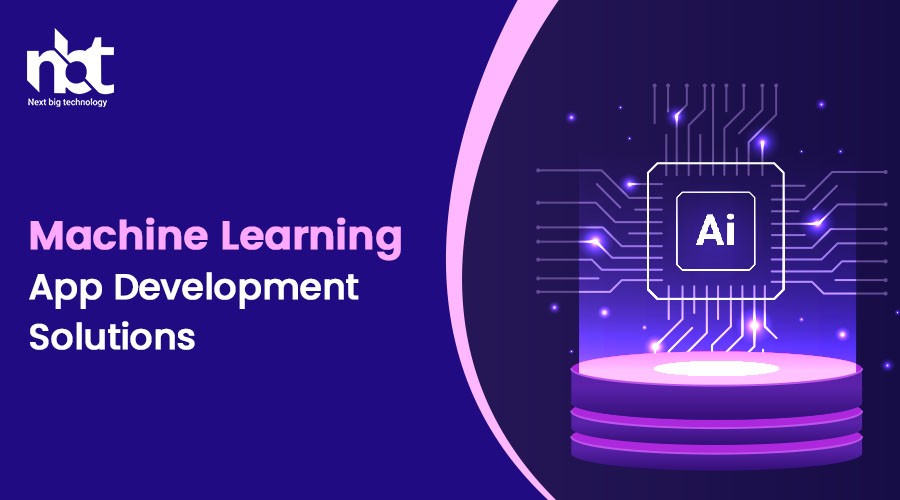Table of Contents
Introduction
Machine learning, a subset of artificial intelligence (AI), has become a driving force in the technology industry. As developers seek more intelligent and adaptive applications, machine learning app development has emerged as a pivotal solution. The ability of machines to learn from data and improve over time brings a new dimension to app functionality and user experience.
The Basics of Machine Learning
At its core, machine learning involves training algorithms on data to make predictions or decisions without explicit programming. Understanding supervised and unsupervised learning, as well as reinforcement learning, provides a foundation for developers venturing into this field.
Applications of Machine Learning in App Development
Enhancing User Experience
Machine learning enables apps to understand user preferences, providing personalized content and recommendations. This not only improves user satisfaction but also contributes to user retention.
Personalization and Recommendation Systems
The integration of recommendation systems powered by machine learning algorithms enhances user engagement. Apps can suggest products, content, or actions based on individual user behavior.
Predictive Analytics
Developers leverage machine learning for predictive analytics, forecasting user behavior and trends. This facilitates proactive decision-making and strategic planning.
Challenges in Machine Learning App Development
While the benefits are substantial, challenges in machine learning app development exist. Data privacy concerns, the complexity of integration, and the need for continuous learning and updates pose significant hurdles.
Key Steps in Machine Learning App Development
Developing a machine learning app involves a structured approach:
- Define the Problem and Goals: Clearly outline the purpose of the app and the problems it aims to solve.
- Data Collection and Preprocessing: Gather relevant data and ensure it is cleaned and formatted appropriately.
- Choosing the Right Algorithm: Select the most suitable machine learning algorithm based on the nature of the problem.
- Model Training and Testing: Train the model with the dataset and rigorously test its performance.
Tools and Technologies in Machine Learning App Development
Choosing the right tools and technologies is crucial for successful machine learning app development. Popular frameworks such as TensorFlow and PyTorch empower developers to build robust and scalable models.
Case Studies: Successful Machine Learning Apps
Amazon’s Recommendation System
Amazon’s recommendation system is a prime example of machine learning success. By analyzing user behavior, the system suggests products, significantly contributing to the company’s sales.
Google Photos’ Image Recognition
Google Photos uses machine learning to recognize and categorize images, simplifying the process of organizing and searching for photos.
Future Trends in Machine Learning App Development
As technology evolves, machine learning continues to advance. Integration with emerging technologies like augmented reality (AR) and virtual reality (VR) is on the horizon, opening new possibilities for innovative app development.
How to Choose the Right Machine Learning App Development Partner
Selecting the right development partner is crucial for the success of your machine learning app. Consider factors such as expertise in machine learning, relevant experience, and a track record of successful projects.
Cost and Resource Considerations in ML App Development
Budgeting for machine learning projects requires a comprehensive understanding of the resources involved. Allocate resources judiciously to ensure a balance between project requirements and financial constraints.
Best Practices for Deploying Machine Learning Apps
Smooth deployment is essential for the success of machine learning apps. Rigorous testing, continuous monitoring, and timely updates contribute to a seamless user experience.
User Adoption and Feedback
Encouraging user adoption involves strategic planning and marketing efforts. Soliciting user feedback is equally important for identifying areas of improvement and refining the app’s features.
Measuring Success in Machine Learning App Development
Key performance indicators (KPIs) such as user engagement, accuracy of predictions, and feedback ratings are essential metrics for measuring the success of a machine learning app. Continuous improvement based on these metrics ensures long-term success.
Common Misconceptions About Machine Learning Apps
Dispelling myths around machine learning apps is crucial for informed decision-making. Common misconceptions include the idea that machine learning is only for large enterprises or that it requires massive amounts of data.
Conclusion
Machine learning app development is not just a trend; it’s a transformative force shaping the future of technology. From personalized user experiences to predictive analytics, the applications are vast and varied. As we navigate the challenges and embrace the evolving trends, one thing is clear: machine learning is here to stay.
FAQ
- Q: Is machine learning only for large companies?
- A: No, machine learning solutions are scalable and can be implemented by businesses of all sizes.
- Q: How can I ensure the security of user data in machine learning apps?
- A: Implement robust data encryption and adhere to best practices in data privacy regulations.
- Q: Are there open-source tools available for machine learning app development?
- A: Yes, popular open-source frameworks like TensorFlow and Scikit-learn are widely used.
- Q: What are the ethical considerations in machine learning app development?
- A: Ethical considerations include bias mitigation, transparency, and ensuring fairness in algorithms.
- Q: How often should machine learning models be updated?
- A: Regular updates are essential to keep machine learning models relevant and accurate.
Thanks for reading our post “Machine Learning App Development Solutions”. Please connect with us to know more about Machine Learning App.















